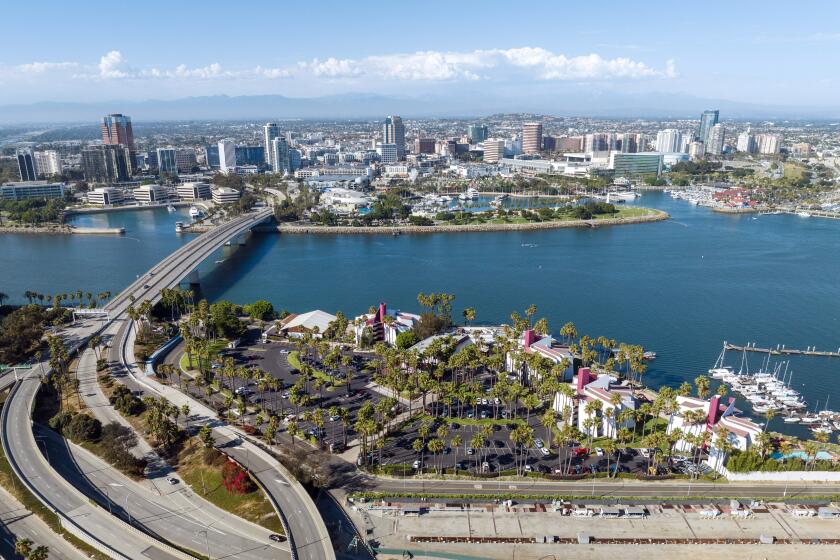Calabasas’ Entrepreneurial Spirit Puts it Into the Swim
Too often, the news about local government is bad. Strapped for cash, cities and counties shut down everything from clinics to parks to make ends meet. They often turn over services such as trash collection to private companies promising cheaper service. So it’s encouraging when a small city like Calabasas can take over a venture and run it even better than private enterprise.
That’s been the case with the Edmund D. Edelman Tennis and Swim Center, an 8.3-acre complex that includes 16 lighted tennis courts, a swimming pool and two weight rooms. Built as a private country club 25 years ago, the lakeside facility was in foreclosure in 1994 when the city bought it for $1.7 million from federal regulators.
Since then, the city has worked to refurbish the center and has watched with delight as attendance has risen along with profits. In 1995-96, the center turned a $50,000 profit on its annual operating budget of $1.3 million. About 125,000 people use the center each year. Roughly a third are from Calabasas. The rest come from all over the West Valley and Thousand Oaks, fulfilling the city’s goal that the facility be accessible to the general public and not just Calabasas residents.
Some scholars on local government caution against using Calabasas’ success with the recreation center as a model for other cities to emulate. They rightly point out that the city’s residents are affluent--median household income is about $90,000--and have more time and money to spend in support of such a center. Many poorer cities are too busy just trying to provide basics such as police and fire protection. Swimming pools and tennis courts are at the bottom of their lists.
True as those points are, Calabasas demonstrates that innovation in local government can work. Looking at a country club in the red, most bottom-line bureaucrats would have seen yet another drain on city resources. Calabasas saw opportunity and turned the liability of an abandoned club into a community asset that makes money. While most cities don’t have enough money on hand to snap up country clubs in default, they should always be looking for ways to better deal with the challenges and opportunities they face.
Each year, the nonprofit National Civic League celebrates the innovation of local governments that seek solutions to problems that seem overwhelming. In Orange County, the city of Westminster, for instance, began a program that helps low-income residents with limited English proficiency into the work force. And Fosston, Minn., helped a group of local students open a Radio Shack as part of the town’s dual effort to keep Main Street alive and prevent bright young people from moving away.
Turning a bankrupt recreation complex around seems like the pet project of a wealthy city, but it represents an entrepreneurial spirit that can--and should--be duplicated in cities around Southern California. Too often, the news about local government is bad because too often local governments try to solve new problems with old ideas. New ideas don’t always pan out. But sometimes they work just swimmingly.
More to Read
Start your day right
Sign up for Essential California for news, features and recommendations from the L.A. Times and beyond in your inbox six days a week.
You may occasionally receive promotional content from the Los Angeles Times.






